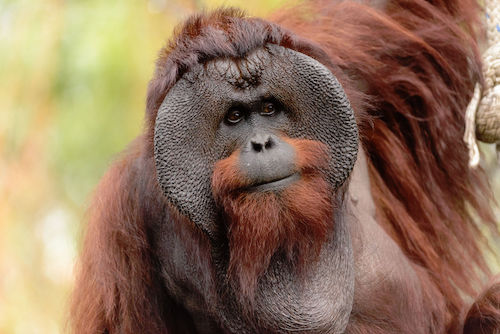 Evolution
Evolution
 Faith & Science
Faith & Science
 Human Origins
Human Origins
Scientist Confirms We Are Not “Just Apes”

Defending human exceptionalism can be a lonely job these days. Many in the science community, participants in the increasingly radical environmental movement, animal rights ideologues, and even some of the most mainstream writers in the popular media have become emotionally committed to proving that humans are just another species in the forest.
That is why I was heartened to see an article at Real Clear Science, authored by Professor S. Joshua Swamidass (discussing a presentation at UC San Diego; see below). John West noticed it too. Swamidass, who teaches in Washington University’s Laboratory and Genomic Medicine Division, declares that we are “More than Just Apes.”
First he notes the same trends I have repeatedly deconstructed:
Is this really what science tells us? That humans are just intelligent apes, unexceptional in most important ways? Many scientists answer, “Yes, we are just apes.”
Even non-religious people reject evolution because of this answer. Any theory that argues “Humans are just animals” seems dehumanizing, and might even be dangerous. On face value, this feels wrong. This, however, is the instinct and the message of the current scientific world.
Swamidass argues that despite our seeming genetic closeness to apes:
…it is fallacious to argue from genetic similarity that we are not exceptional. In fact, this leap misrepresents our current understanding of evolution. According to neutral theory, genome similarity measures the time since we separated from apes (which was quite recently), rather than meaningfully measuring functional differences or distance.
Therefore, we should consider the obvious. Even if we are similar to apes, as Dr. Ajit Varki puts it, “Humans are very very unusual.” We humans, it seems, are more than just apes.
I have presented many attributes and unique capacities that distinguish us from animals of the field (as they were once called), and won’t repeat them here. Swamidass adds a few more attributes and phenomena to the list that makes humans exceptional:
First, humans are the only known species that has out-competed all other sibling species (e.g. Neanderthals and Denisovans) to spread into every habitat across the globe. As far as we know, this has never happened before in the history of the planet.
Second, the human mind is unique, and nothing like it has been encountered in all our planet’s history…
People left Africa 70,000 years ago and spread across the planet, acquiring new genetic variation as they went, but still have the same remarkable abilities. “That means that all the mental abilities to do calculus, astrophysics, symphonic music, and philosophy, and theology, and Veritas Forums, were already there.” This is not a normal example of exaptation (reuse of a structure for a new purpose). How can evolution do that?…
[Ajit] Varki is not arguing that evolution is false. Instead, he emphasizes that an honest look at human evolution, even from a strictly scientific perspective, reveals that humans truly are exceptional. A “singularity” in our planet’s history has occurred. Nothing like us has ever arisen on the planet before. Something transcendent and special has happened here.
It is good to see a fellow advocate of human exceptionalism give voice to what should be a self-evident truth.
Photo: Male Bornean Orangutan, by Eric Kilby [CC BY-SA 2.0], via Wikimedia Commons.
Cross-posted at Human Exceptionalism.
